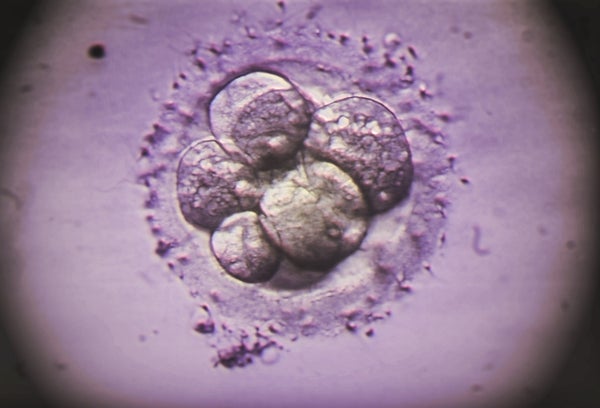Alabama’s Embryo Personhood Decision Threatens Patients, Medicine and Advances in IVF
A state court ruling that embryos from in vitro fertilization are unborn children harms access to care for fertility patients, as well as medical innovations
IVF embryo. Colored light micrograph of a human embryo 48-72 hours after in vitro fertilization (IVF). At this stage an embryo typically consists of between 4-8 cells.
Zephyr/Science Source
Alabama’s Supreme Court ruled in February that frozen embryos from in vitro fertilization (IVF) are considered “unborn children.” The decision allowed for lawsuits when the loss of an embryo was caused by “the wrongful act, omission, or negligence of any person.”
In the days following this decision, my community—infertility and cancer patients in the privacy of exam rooms here in California, the clinical team caring for them, scientists and policy makers working on innovations to improve fertility care, and medical trainees drawn to reproductive justice and learning advocacy—expressed dismay, fear, confusion and outrage.
That’s because this ruling hurts patients, equitable access to care, and medical advancements in fertility both now and in the future. The reasons are clear to anyone who understands the reality of infertility treatment.
On supporting science journalism
If you’re enjoying this article, consider supporting our award-winning journalism by subscribing. By purchasing a subscription you are helping to ensure the future of impactful stories about the discoveries and ideas shaping our world today.
IVF is the cornerstone of infertility and fertility preservation treatments. A conservative estimate is that one in five people will experience infertility. In addition, young people who face medical treatments that can cause infertility also use fertility preservation services to give them reproductive options in the future.
IVF shows the potential for eggs and sperm to join and grow through various…
Read the full article here







